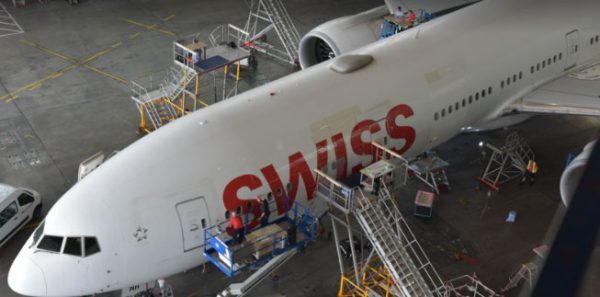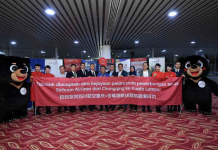SINGAPORE, 21 May 2024: Swiss International Air Lines has applied sharkskin film to its fleet of 12 Boeing 777-300ER long-haul aircraft in a bid to reduce its fuel bill and improve its carbon footprint.
AeroSHARK technology, which promises to reduce fuel consumption, was first applied to the first SWISS aircraft in October. Now, the final member of the SWISS Boeing 777 fleet, HB-JNF, received its ‘sharkskin’ film at the beginning of May, ensuring all 12 aircraft are flying with the innovative new technology.

The transparent AeroSHARK film is applied to the aircraft’s fuselage and engine nacelles. With its micrometre-deep ‘riblets’ aligned to the airflow direction, the film replicates the hydrodynamic skin of a shark, reducing air resistance in flight by around 1%. As a result, even with only part of its Boeing 777 fleet equipped with the new technology, AeroSHARK lowered SWISS’s kerosene consumption last year by over 2,200 tonnes, with concomitant reductions of some 7,100 tonnes in the airline’s carbon dioxide emissions.
“We are very pleased with the results that we have achieved with AeroSHARK to date,” said SWISS’s Head of Technical Fleet Management Claus Bauer. “We’re proud, too, to be the first airline in the world to have equipped an entire aircraft fleet with this innovative technology. It takes about a week for each aircraft to have the AeroSHARK film applied, which requires high-precision workmanship. I am delighted that our commitment to this technology is delivering such positive results, enabling SWISS to take a further substantial step in making flight operations more sustainable.”
Lufthansa Technik and BASF jointly developed the AeroSHARK aircraft skin technology. SWISS is also considering extending its AeroSHARK application programme to other aircraft types in its long-haul fleet in the medium term.






